Relevant Overviews
- Communication Strategy
- Content Strategy
- Online Strategy
- Online Community Management
- Social Media Strategy
- Content Creation & Marketing
- Online Architecture
- Digital Transformation
- Innovation Strategy
- Surveillance Capitalism, Social media and Polarisation (Overview)
- Communications Tactics
- Psychology
- Productivity
- Social Web
- Media
- Politics
- Communications Strategy
- Science&Technology
Overview: Content Strategy
Are you creating the content your audience actually wants to consume, or are you just talking about yourself?
What sort of content will your audience read, out of the endless supply at their fingertips? Formal news articles or blog posts from your staff and readers? An event calendar updated daily, or a longread every month? Static web pages, or a deeply granular database with faceted search?
And have you figured out how to get it to them, develop engagement around it, and translate that success into something concrete, fulfilling your mission? How many of the friends and organisations in your network amplify your message regularly?
Need answers? Get in touch.
More services: start with Communication strategy.
Relevant resources
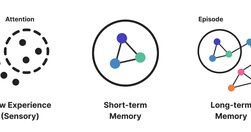
from Alice Albrecht, who "runs re:collect, a startup building an AI-powered thought partner:... advances in AI and cheaper compute lower the bar for getting from a creative idea to a final output... though, we still need to provide the initial seed... and ... judge whether we’re heading in the right direction. We’re still the creative direct…
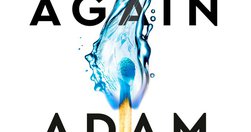
A YANSS interview with Adam Grant, author of Think Again: The Power of Knowing What you Don’t Know. Generally an "extensive exploration of how to rethink your own thinking", including his WorkLife podcast interview of Margaret Atwood on procrastination.(When annotating a podcast I really like a transcript, but there was none for this epi…

"more than 200 studies that show the positive effect of writing on mental health... but researchers don’t completely agree on why or how".One idea: "safe, confidential way to disclose emotions that were previously bottled up". But "recent studies show an increase in self-awareness ... could be the key". Turn your att…
A "perverse downstream consequence for debunking... being corrected by another user for posting false political news increases subsequent sharing of low quality, partisan, and toxic content".Looks like evidence for the backfire effect: "Direct correction ... backfires by making people feel defensive or focusing their attention on so…

labelling delusions as irrational suggests that all ‘normal’ cognition is rational... new theory suggests delusions emerge from specific processes in our ‘coalitional psychology’ ... mechanisms ... understand our social environment...most delusions involve social content... Beliefs serve a significant social purpose... cooperate with each other, …

counties that had voted for Donald Trump in 2016 exhibited 14% less physical distancing... higher Covid-19 infection and fatality growth rates ...the hormone oxytocin... promotes bonding... plays a role in trust... When participants trusted and felt trusted, oxytocin levels ... jumped... Trust just feels good... But risky if we give it to the w…

Covid-19 case numbers are now spiking in many counties across West Texas ... [but] resolve of ... skeptics appears to be stiffening... the denial of facts is often rooted in identity and belonging, not in ignorance ...people who deny science ... trying to uphold membership in ... a political or religious affiliation or some other group ... a commu…

echo chambers and epistemic bubbles... systematically exclude sources of information... exaggerate their members’ confidence in their beliefs... work in entirely different ways... epistemic bubble is when you don’t hear people from the other side. An echo chamber is what happens when you don’t trust people from the other side...‘epistemic bubble’ …

active information avoidance... keeping our senses away from information that might be useful, that we know is out there, that would cost us nothing to obtain, but that we’d still rather not learn...
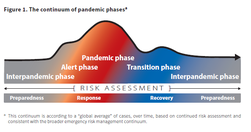
There are about 175 known cognitive biases to date. I will share some of the ones that I think are the most significant for designers... It is important that we not learn about biases to simply point out errors in others... we [need] to spot errors in our own thinking ...confirmation bias ... conservatism bias ... [influence us] to select and use …

journalism primarily do one thing: cover events... The internet has sped up the news cycle. Now we put more emphasis on covering the last event... But ... events in this era have ceased to drive politics...impeachment... Mueller investigation ... “Access Hollywood” tapes... barely leave a trace on the polls...Events don’t seem to be driving politi…
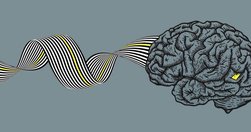
How fake news gets into our minds, and what you can do to resist it... to understand why it gets into our mind... by examining how memory works and how memories become distorted.... Fake news often relies on misattribution ... we retrieve things from memory but can’t remember their source... one of the reasons advertising is so effective... Repe…
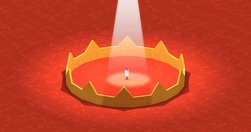
intellectual humility, the crucial characteristic that allows for admission of wrongness... crucial for learning... difficult to foster... a virtue worth striving for... entertaining the possibility that you may be wrong and being open to learning ...actively curious about your blind spots... It’s about asking: What am I missing here? our reali…
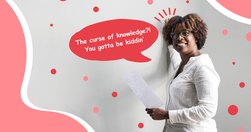
The curse of knowledge is a cognitive bias that occurs when an individual, communicating with other individuals, unknowingly assumes that the others have the background to understand... seen at all levels of a company... if you already know the answer... tend to underestimate the difficulty of the question or the problem... become so immersed in t…

naive realism, the tendency to believe that the other side is wrong because they are misinformed, that if they knew what you knew, they would change their minds to match yours... maybe WE are the ones who are wrong. We never go into the debate hoping to be enlightened, only to crush our opponents... When confronted with people who disagree, you te…
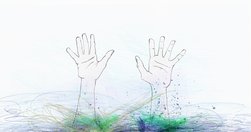
the Oxford Circus panic ... was amplified by social media.... Fear can be transmitted digitally as easily as it can physically—and that’s a problem because digital technologies reach everyone.... the English-speaking world is in the middle of a fear pandemic... Cognitive biases leave us ill-equipped ... Amygdala hijacks and warped media business m…
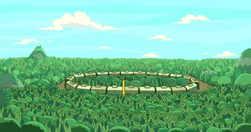
One of the most effective ways to change people’s minds is to put your argument into ... a story — but not just any story. The most persuasive narratives are those that transport us. Once departed from normal reality into the imagined world of a story, we become highly susceptible to belief and attitude change.... learn from psychologist Melanie C…

talk-show hosts like journalists ... know how to grab the brain’s attention and stimulate fear, sadness or anger.... We value the ancient power of storytelling, and we get that good stories require conflict, characters and scene. But in the present era of tribalism, it feels like we’ve reached our collective limitations... I met psychologists, med…

A library, organised by topic
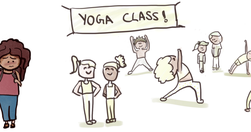
Confirmation bias is the human tendency to seek, interpret and remember information that confirms pre-existing beliefs.... insidious. It affects every choice you make. Every. Single. Day. ... without you noticing. Confirmation bias affects you in 3 ways... Why? You seek evidence that confirms your beliefs because being wrong ... means you’re not …
What if “persuadability” isn’t the right metric to look at? ... Information warfare expert Molly McKew, who specializes in U.S.–Russia relations... "There aren’t good tools to evaluate the impact of shadow campaigns... Information and psychological operations ... are not just about information, but about changing behavior... of more than 36,000 …
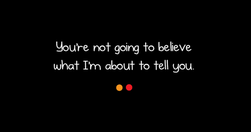
the backfire effect can be hard to replicate in rigorous research... a large-scale, peer-reviewed study ... couldn't reproduce the high-profile 2010 study . ... The trouble is that even when we learn that something is false, we may be able to acknowledge those facts without changing our political position accordingly
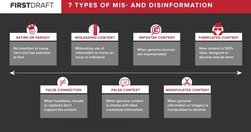
it just felt like the conversations that we were having subsequently were actually pretty shallow and actually pretty useless, because we were talking over each other because everybody meant different things... we can only really start talking about interventions if we understand what we’re talking about... I say, “Please don’t use the term.” “Yea…

Confirmation bias... such a prevalent feature of human cognition, that until recently a second phenomenon has been hidden in plain sight. Recent research suggests that something called desirability bias may be just as prevalent in our thinking... When future desires and past beliefs are incongruent, desire usually wins out.
This edition focuses on getting the most out of podcasts and so includes a new tweak to my personal content strategy.

Habitual googling leads us to mistakenly believe we know more than we actually do ... even when we no longer have access to the internet. The more you use Google, it seems, the smarter you feel without it...

Clinicians should aim to understand parents’ values and engage in genuine, respectful conversations; these processes can help vaccine-hesitant parents feel heard and understood... Recognizing cognitive biases ... can also help ... omission bias may lead parents to blame themselves more if a child develops a vaccine-related side effect ... than ...…
the knowledge illusion is a common form of human fallibility, but Trump takes it to an exceptional degree... When asked to explain something, he changes the subject, his confidence in his knowledge unwavering... reflectivity... whether people are likely to be highly deluded about their own knowledge... Low scores on the reflectivity test correlat…

Fighting people with facts only makes them cling to their beliefs more strongly, further polarising our damaged societies. Different tactics are needed, and they start closer to home than you think.
summary of the literature that offers practical guidelines on the most effective ways of reducing the influence of myths. The Debunking Handbook boils the research down into a short, simple summary, intended as a guide for communicators
Relevant Overviews
- Communication Strategy
- Content Strategy
- Online Strategy
- Online Community Management
- Social Media Strategy
- Content Creation & Marketing
- Online Architecture
- Digital Transformation
- Innovation Strategy
- Surveillance Capitalism, Social media and Polarisation (Overview)
- Communications Tactics
- Psychology
- Productivity
- Social Web
- Media
- Politics
- Communications Strategy
- Science&Technology